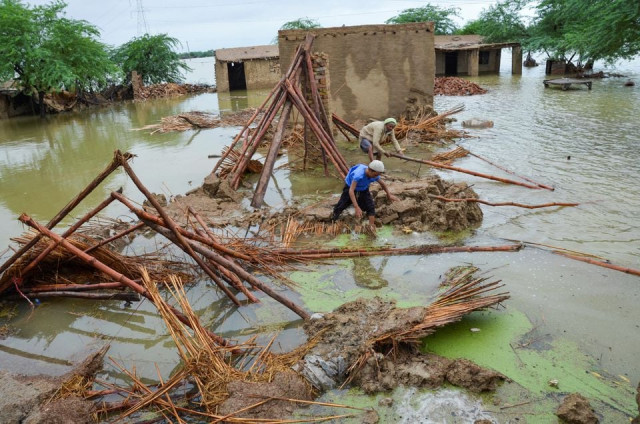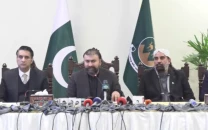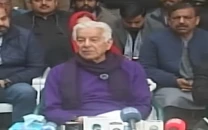Tough days ahead: Balochistan’s turbulent year marred with loss of life
If the flooding was not enough, terrorism attacks made a comeback in the province putting residents at a grave risk

For the country’s largest province in terms of area, it has been a rough year due to the monsoon flooding, uptick in terrorism, and political uncertainty. And if the plight of Balochistan’s populace is not addressed in a timely fashion, the upcoming year will not be any different for them.
The merciless monsoon flooding of this year, which caused a financial loss of more than Rs400 billion to the province, claimed 368 lives, rendered thousands of families homeless, and destroyed standing crops and livestock in 32 out of 34 districts of Balochistan.
Furthermore, the road and rail network was adversely impacted as well, which led to the province being cut from the entire country for more than a month, for the first time in its history. Presently, the victims of the monsoon flooding continue to wait for the government to fulfil its promises of rehabilitating them and giving them compensation for loss of agricultural land.
Apart from the loss of life due to flooding, Balochistan also witnessed a sharp rise in the number of militant attacks during the year. Earlier during the year, terrorist factions targeted polio teams and killed three members of a family when an explosive-laden vehicle was rammed into a truck carrying policemen to guard polio teams in Quetta.
Also read: Six soldiers martyred in Balochistan IBOs
The most recent of these attacks came towards the end of this month, when militants carried out 9 low-scale explosions in Quetta and other parts of the province. These recent events show that the security situation is not likely to improve in 2023 and security analyst have already sounded the alarm bells that terrorist groups will up the ante in the form of suicide attacks.
Turbulence was also seen on the political front in the province, as a no-confidence motion, submitted by the former chief minister (CM) Jam Kamal Khan and others, against the current CM Mir Quddus Bizenjo, failed.
While the CM was successful in keeping his support base in the provincial assembly intact, one of the mainstream Pashtoon nationalist parties of the province saw its house being split into two. Pashtoonkhwa Milli Awami Party (PKMAP), was divided into two factions, one led by Mehmood Khan Achakzai and another led by Khushal Khan Kakar, both of whom are now claiming to be the rightful chairman of the party. It is now increasingly likely that the PKMAP’s legal quagmire will either be decided by the Election Commission of Pakistan or a court of law.
Perhaps the biggest beneficiaries of the PKMAP’s divided house are independent candidates and the Jamiat Ulema e Islam (JUI), as both managed to bag the most seats in the historic local government polls held in 32 districts of the province. It is pertinent to mention that in the recent past, this was the first time when all political parties in the province accepted the results and none complained about rigging.

















COMMENTS
Comments are moderated and generally will be posted if they are on-topic and not abusive.
For more information, please see our Comments FAQ